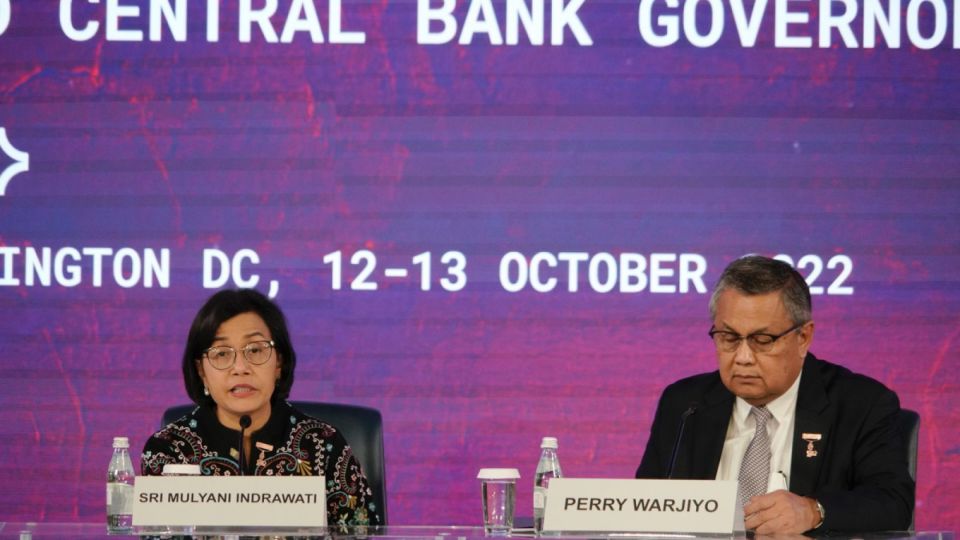October 17, 2022
JAKARTA – The Group of Twenty (G20) finance chiefs have concluded their final meeting under Indonesia’s presidency this year without a joint statement but still managed to reach several agreements, one of which is to help countries in debt distress.
Indonesian Finance Minister Sri Mulyani Indrawati, who chaired the meeting, said the group had agreed on the need to deal with the problem of debt in low- and middle-income countries via a common framework for debt restructuring.
“We have the unintended consequences of weak economies as well as potentially worsening debt distress in many countries — not only low-income countries, but also middle-income and high-income countries,” Sri Mulyani said after the group had concluded its fourth and final Finance Ministers and Central Bank Governors (FMCBG) Meeting under Indonesia’s G20 leadership.
She elaborated that many countries were finding themselves in a position of debt distress, as they faced high interest rates on top of the already heavy debt loads they were bearing because of the sudden need to expand fiscal spending to deal with the pandemic.
Faster-than-anticipated monetary tightening by many central banks had also increased the risk, as it led to weakened local currencies and even higher yields, both of which made borrowing more costly.
The group also conveyed its commitment to other measures aimed at helping countries in debt distress, namely global financial-safety nets and increased support from multilateral-development banks for countries “in critical situations”.
This financial support should go beyond addressing debt distress to encompass global public goods related to climate change and other challenges.
The finance chiefs’ meeting was overshadowed by a deteriorating global economy, with recent projections pointing to weaker-than-expected economic growth in 2022 and 2023, while already high inflation has been revised up.
The IMF warned that countries should not dismiss the increased risk of recession, and Sri Mulyani stressed in her speech: “It is not an exaggeration to say that the world is in a state of danger.”
The problem is compounded with risks from energy and food insecurities, climate risk and geopolitical fragmentation, which the first is exacerbated by war in Ukraine, restrictive trade policies and supply-chain disruption.
Sri Mulyani went on to say that the group also reaffirmed its commitment to reforms of international corporate taxation under a deal that was struck last year but has been delayed in its implementation.
However, two points on the taxation agenda highlighted by Sri Mulyani in December last year, namely the carbon tax and gender-based taxation, were not listed among the results of the final FMCBG meeting.
The group also vowed to make progress on financial-sector regulation and supervision, including rules pertaining to cryptocurrency assets and markets; the sustainable-finance roadmap, including ways to make the energy transition more affordable for poorer countries; as well as infrastructure and technology investment.
Bank Indonesia Governor Perry Warjiyo, who co-chaired the meeting, said the group welcomed ongoing efforts to explore the potential of central bank digital currencies as a way to facilitate cross-border payments.
“In this regard, discussion continues both on the macro-financial challenges as well as on how to design the technology,” Perry said.
The group discussed crypto-asset development and strategies to enhance risk monitoring, while taking into account the technology’s novel features and seeking to harness the benefits it offers.
Other topics discussed included how to make progress on frameworks to support financial stability, identify structural vulnerabilities in non-bank financial intermediation and ascertain whether such vulnerabilities pose systemic risks.
The third FMCBG meeting, held in July, had also ended with only a chair summary rather than a formal communiqué amid conflicting views on the war in Ukraine and what the Indonesia’s finance minister referred to as “escalating geopolitical conflict”.


